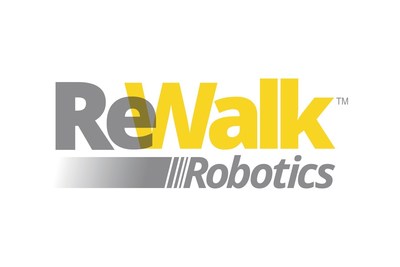Peer-Reviewed Case Study Demonstrates Various Health Improvements Following ReWalk Exoskeleton Use
YOKNEAM ILIT,

"The study has confirmed what we can see with the ReWalk system also in daily practice: The ReWalk system on the one hand creates an additional possibility of mobility for the patient, but is moreover also an excellent therapy and training tool for people with complete or incomplete paraplegia. Use of the ReWalk device can immediately have a large effect on the quality of life of the user," said Professor Dr. med. Karsten Krakow.
"This case study offers critical analysis on the impact of exoskeleton use on the health and well-being of those with spinal cord injury," said ReWalk CEO
The study measured patient progress utilizing the Short Form 36
The study concludes:
"This case report of treatment of a patient with SCI using the ReWalk system gives evidence of a positive impact on quality of life, ability to walk, cardiovascular endurance and motor neurological status."
The case study also reported no complications such as falls, skin injuries or technical problems, supplementing the existing body of clinical literature demonstrating the safety of the ReWalk robotic exoskeleton.
ReWalk is CE marked, and is the only system in the U.S. that is
About ReWalk Personal 6.0
ReWalk Personal 6.0 is a wearable robotic exoskeleton that provides powered hip and knee motion to enable individuals with spinal cord injury to stand upright and walk. The system provides user-initiated mobility through the integration of a wearable brace support, a computer-based control system and motion sensors. The system allows independent, controlled walking while mimicking the natural gait patterns of the legs. The ReWalk device is the most studied exoskeleton in the industry. Studies have identified a number of health benefits including: improved bladder and bowel function, improved mental health, improved sleep, reduced fatigue, decreased body fat, decreased pain and improved posture and balance.
About
ReWalk® is a registered trademark of
Forward Looking Statements
In addition to historical information, this press release contains forward-looking statements within the meaning of the U.S. Private Securities Litigation Reform Act of 1995, Section 27A of the U.S. Securities Act of 1933, and Section 21E of the U.S. Securities Exchange Act of 1934. Such forward-looking statements may include projections regarding ReWalk's future performance and, in some cases, may be identified by words like "anticipate," "assume," "believe," "continue," "could," "estimate," "expect," "intend," "may," "plan," "potential," "predict," "project," "future," "will," "seek" and similar terms or phrases. The forward-looking statements contained in this press release are based on management's current expectations, which are subject to uncertainty, risks and changes in circumstances that are difficult to predict and many of which are outside of ReWalk's control. Important factors that could cause ReWalk's actual results to differ materially from those indicated in the forward-looking statements include, among others: ReWalk's expectations regarding future growth, including its ability to increase sales in its existing geographic markets and to expand to new markets; ReWalk's ability to maintain and grow its reputation and the market acceptance of our products; ReWalk's ability to achieve reimbursement from third-party payors for our products; ReWalk's expectations as to its clinical research program and clinical results; ReWalk's ability to improve its products and develop new products; ReWalk's ability to maintain adequate protection of its intellectual property and to avoid violation of the intellectual property rights of others; ReWalk's ability to gain and maintain regulatory approvals; ReWalk's ability to maintain relationships with existing customers and develop relationships with new customers; and other factors discussed under the heading "Risk Factors" in ReWalk's U.S. Annual Report on Form 20-F for the year ended December 31, 2014 filed with the
Logo - http://photos.prnewswire.com/prnh/20150713/235995LOGO
To view the original version on PR Newswire, visit:http://www.prnewswire.com/news-releases/peer-reviewed-case-study-demonstrates-various-health-improvements-following-rewalk-exoskeleton-use-300210228.html
SOURCE
Jennifer Wlach, 202-261-4000, jwlach@mercuryllc.com; Investor Relations Contact: Lisa M. Wilson, In-Site Communications, Inc., 917-543-9932, lwilson@insitecony.com
